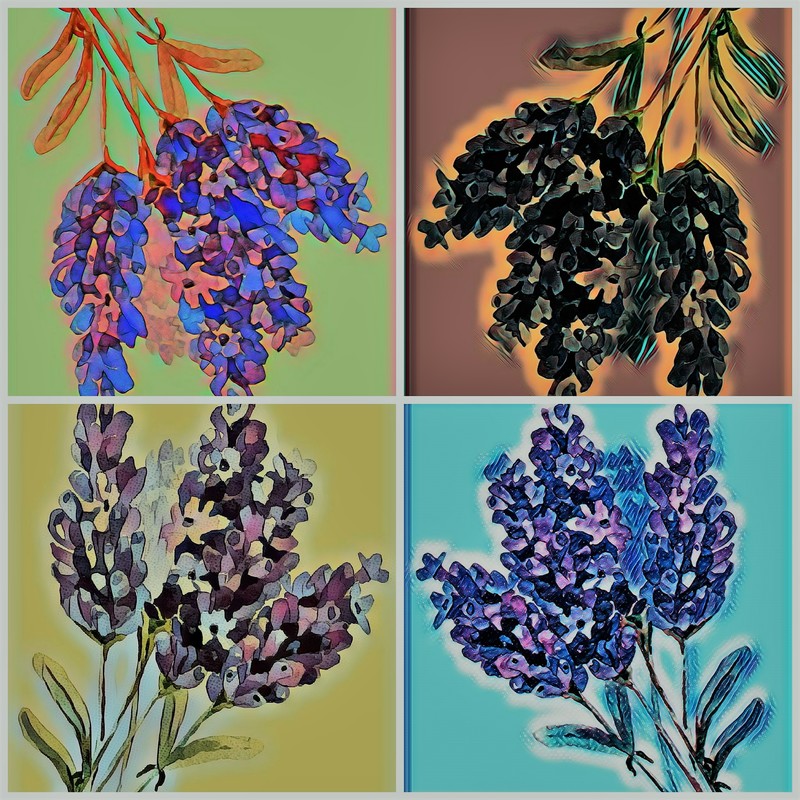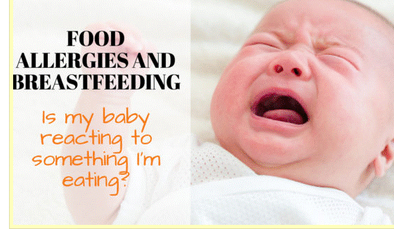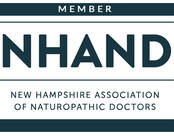|
This article can also be found on Naturopathic Pediatrics. My baby is exclusively breastfed and has never eaten solids, but seems to react to my milk. What could be causing it?
Proteins from the foods you eat are passed to your baby through your breastmilk and may be causing an allergic or hypersensitivity reaction. The foods that most commonly cause these reactions in young children are cow’s milk, eggs, peanuts, gluten, soy, tree nuts, corn, fish, and shellfish. The allergies show up as digestive issues, skin rashes, and respiratory concerns, and often with multiple symptoms at once.1,2 If you or close family members have food allergies, your baby is more likely to have them as well.2 This post will provide you with resources to eliminate allergenic foods from your diet to find out if they’re causing your little one discomfort. Later you will test the foods to see if your baby has outgrown the reaction. Most babies outgrow these early food reactions somewhere between the ages of 1-3.1,2 We recommend doing the Elimination / Challenge Diet under the supervision of a Naturopathic Doctor, as we are extensively trained and experienced in the areas of diet and nutrition. There are different types of immune reactions your baby might be having when reacting to allergenic foods. The rarest, but most serious, is a true allergy (IgE-mediated), which happens within 2 hours of eating and can result in anaphylaxis, a potentially life-threatening condition. More commonly, it is a delayed sensitivity reaction that causes Gastrointestinal symptoms like loose stools, diarrhea, bloody stools, constipation, abdominal pain (colic), vomiting, and reflux.2 Sensitivity reactions occur within a couple of hours to a couple of days of exposure to an allergenic food. While they are not life-threatening, sensitivity reactions can increase inflammation in the gut, alter the immune cells of babies, and increase Immunogloblin G (IgG) for the specific foods.2,3,4 Read our great article about the different types of allergic and sensitivity reactions for more details. Symptoms of food allergies and sensitivities:
Why does everyone think the problem is dairy? When you talk about your baby’s Colic, Eczema, or Ear Infections to friends and family, they might suggest that dairy is causing the issue. The reason for this is that Cow’s Milk Allergy (CMA) is the most common food allergy in young children, and has been studied more than any other food allergy. Approximately 2-8% of formula-fed babies and 0.5% of breastfed babies experience Cow’s Milk Allergy.5,6,7 Since food allergies are on the rise and are believed to be under-reported and under-diagnosed, these numbers may actually be higher.1,8 In breastfed babies, the most common symptoms of a milk allergy are eczema and bloody stools.2,6,10 Removing dairy from your diet is the best way to find out if it’s causing your baby’s problem and will provide the quickest relief if it is. But more on that in a bit. Most formulas on the market are made with dairy. Cow’s Milk Allergy is less common and less severe in breastfed babies than formula-fed babies, because they encounter fewer milk proteins in Mom’s milk than babies who drink actual cow’s milk in formula.2 Breastmilk remains the perfect and preferred food for your baby, so keep it up! Maintaining breastfeeding is the best way to prevent an allergy to cow’s milk. It also decreases the risk of developing other allergies and sensitivities by providing beneficial immune complexes and diverse gut flora.2,4 Dairy Foods: Milk, cream, ice cream, cheese, sour cream, cream cheese, cottage cheese, yogurt, butter, casein or caseinate, and whey. Lactaid contains casein and whey, the allergenic proteins in milk, and should be avoided. Goat and sheep’s milk should also be avoided by a breastfeeding Mom during the elimination period. FUN FACTOID: Cow’s Milk Allergy and Lactose Intolerance in young children are often confused, but Lactose Intolerance is extremely rare in kids under the age of 2. Young children have plenty of Lactase, the enzyme that breaks down the sugar Lactose, so that they can process all that yummy breastmilk. What other foods could be causing it? Other than dairy, the most common allergenic foods are eggs, peanuts, gluten, soy, tree nuts, corn, fish, and shellfish.5,6 At least 50% of kids with a milk sensitivity will react to one or more other foods in addition.9 Other foods known to aggravate babies’ sensitive tummies are onions, spicy foods, brassica vegetables, nightshades, citrus, caffeine, alcohol, and sugar. What do I do now? The Elimination / Challenge Diet. Removing potentially allergenic foods from your diet is the only way to know for sure if your baby is reacting to the foods you’re eating. It is also the quickest way to get your baby feeling well if she is indeed reacting adversely to foods. Breastfeeding Mama, I know you have lot going on right now! It pains me to think this process might add to the stress of caring for an infant. That said, it is so very important to remove all the allergenic foods at once in order to get your baby feeling better as quickly as possible. Remember that this is a temporary process that lasts about 5-8 weeks. One benefit is that once you’re done with the diet, you will know if you’re also reacting to these allergenic foods. This process might make you feel better, in addition to your baby! If you have known food reactions but fell off the wagon with avoiding them during pregnancy, (GUILTY!) be sure to remove them from your diet even if they aren’t included on the elimination list. Since babies are exposed to Mom’s immune cells during pregnancy and breastfeeding, it’s possible your baby is reacting to the same foods as you.4,8 So, what is the Elimination / Challenge Diet? Our very handy e-book about the diet can be purchased here. It is meant to be used along with the guidance of a Naturopathic Doctor. The Elimination portion entails removing the most allergenic foods from your diet for at least a 2 week period. Most baby’s symptoms improve within 2 weeks, but sometimes it takes longer. If you don’t see improvement within 2-3 weeks, return to your Naturopathic Doctor to further work-up the issue and rule out causes other than a food reaction. Be VERY careful to continue to consume enough calories to maintain good breastmilk supply. Foods to remove:
As you need sufficient fat and calories as a breastfeeding Mom, a restrictive diet like this can feel challenging. But it is doable! Check out this great article about a similar diet, which provides links to helpful recipes and pointers on getting through it. This article with Gluten Free, Dairy Free Snack Ideas is also a great resource. Reintroducing the foods: The Challenge portion. The Challenge part of the diet helps you figure out which food or foods are causing your baby’s symptoms and takes 3-4 weeks to complete. Look out for changes in your own body as well, as you might benefit from avoiding certain foods even when your baby outgrows his sensitivities. If your baby’s symptoms resolved within 2 weeks, you can start testing each of the allergenic foods individually. If her symptoms have improved but not resolved entirely, stick with the elimination portion for another 2 weeks.2,5 You will test one food at a time every other day until you’ve tested all of them. You will eat the allergenic food in its purest form (not mixed with any other ingredients) at all 3 meals on the day you test the food. Watch for symptoms in your baby similar to the ones you saw when she first reacted – most commonly GI, skin, and respiratory issues. If your baby reacts at the first or second meal on test day, do not eat the food again that day and remove it from your diet entirely. If your baby doesn’t react that day or the next day, add the food back into your diet. It’s helpful to keep a log about what you tested, when, and associated symptoms, as it can be a lot to keep track of. If your baby still reacts to a food, strictly remove it from your diet for 6 months, at which point you’ll test it again.2,6 When the time comes, check with your doctor about if and when it’s appropriate to introduce an allergenic food as a solid to your child, as this varies from case to case. Do not reintroduce foods to which your baby has a suspected or confirmed IgE allergy, as this can be dangerous. Consult with your doctor about the timing of reintroducing these foods, and if it should be done in a clinical setting. What about Food Sensitivity Testing? Testing for IgG sensitivities is not recommended in kids under 2.5-3 years old, as their immune systems are just too immature to produce accurate results.3 The good news is that Mom can undergo sensitivity testing, which can be very helpful in a situation like this. While it has some drawbacks, I do a lot of Food Sensitivity Testing in my practice and find it helpful in detecting reactions to foods not included in the elimination diet. The complete Elimination / Challenge diet combined with Food Sensitivity Testing provides the most information about which foods to avoid and is the ideal approach, when possible. When will it go away? Hang tight! Most kids outgrow their sensitivities by 3 years of age. If your child has a true allergy to a substance, it may take longer to outgrow it, but most do by age 16.2 Food allergies and sensitivities can be complicated to navigate. Find a practitioner – ideally a Naturopathic Doctor – who you trust to guide you through it. And don’t forget to check out our Elimination / Challenge guide, which includes step-by-step instructions for the diet. References:
Dr. Michelle Haff is a Naturopathic Doctor and Certified Acupuncturist at Lilac Natural Medicine in Bedford, New Hampshire. Her practice focuses on Pediatrics, Women's Medicine, GI, Endocrine, and Mental Health concerns. She is a Primary Care Provider for the whole family and loves treating kids from pre-conception into their teens, as well as adults of all ages. Dr. Haff is a graduate of Sonoran University of Health Sciences in Tempe, Arizona and Smith College in Northampton, Massachusetts. She is licensed in New Hampshire and is the President of the NH Association of Naturopathic Doctors. Dr. Haff is also a member of the Pediatric Association of Naturopathic Physicians.
Comments are closed.
|
Dr. Michelle Haff (she/her) is a Naturopathic Doctor and Certified Acupuncturist at Lilac Natural Medicine in Bedford, New Hampshire. Her practice focuses on Pediatrics, Women's Medicine, GI, Endocrine, and Mental Health concerns. She is a Primary Care Provider for the whole family and loves treating kids from pre-conception into their teens, as well as adults of all ages.
|
Lilac Natural Medicine - Dr. Michelle Haff - (603) 707-4433
|
Lilac Natural Medicine 170 S. River Road, Ste. 102 Bedford, NH 03110 Phone: 603-707-4433 Fax: 888-652-3587 |
©COPYRIGHT 2024
LILAC NATURAL MEDICINE, LLC ALL RIGHTS RESERVED. |



 RSS Feed
RSS Feed

